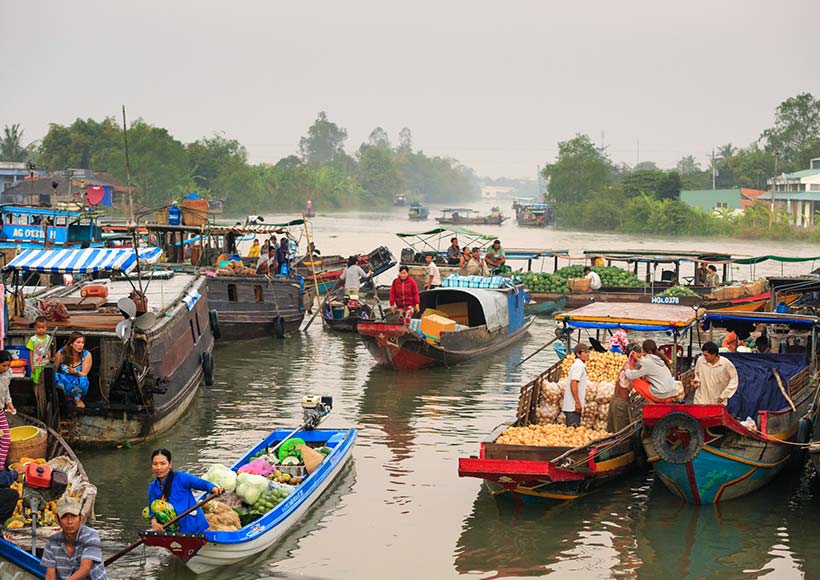
One of the most important things to take into account when picking a place to live has to be the cost of living. The most wonderful spot on the planet can only be the place to live if you can afford it. The most essential part of a family’s budget is food. We cannot live without it and, in the Western world, the cost of food has skyrocketed due to rising gas prices, the extremes in weather and the destruction of crops by natural disasters.
Thailand, with its arable land and seasonal weather, abounds with locally grown, fresh food which makes food preparation easy and low in cost. Both Thai and Western foods are available in local, reasonably priced supermarkets, reducing the cost of food preparation and even making eating out affordable. Living quarters are also available at a reasonable cost if that’s what you need or you can find accommodations to match your lifestyle at just about any price. You can live simply and modestly in a lovely, affordable home or you can live the “high life” in a luxurious apartment, condo or house if you have the resources to pay more. Many people find that, for the same amount they paid “back home,” they can rent or own a much bigger, more expensive home, even in the “big city” of Bangkok.
In the U.S., one of the signs of a well-to-do person is a housekeeper or other servant. Most of the middle-class in America or England cannot afford house-servants but in Thailand, you can hire a full-time housekeeper for less than $200 a month. Most people who move to Thailand and manage their resources well find they can afford not only a housekeeper but a gardener and a driver as well. But, with such amenities come problems. Dealing with servants can be difficult in your own native country where you all speak the same language.
In a country like Thailand, where most of the servants will be foreign-speaking to you, it is necessary to learn the language as much as you can so that you are speaking words they understand. Also, you will have to learn the customs of Thailand’s hierarchical society, which keeps the relationship between servants and their employers on a very proper and business-like level. Your house-keeper will not be “one of the family” and would be insulted to be treated as one. As in any country, it is imperative to get good referrals for anyone you hire to work in your home.
HOW MUCH DO YOU NEED TO LIVE IN THAILAND
That is the most common question asked on the internet. It is the same as asking how long is a piece of string? Calculate what you can generate each month and then cut your lifestyle according to your cloth. These would be an average expat teacher in Thailand and what they spend their money on. One teacher is better paid than the other so look at their budgets:
Chiang Mai : Salary ฿38,000 per month
I paid ฿24,000 for 6 months rent in a condo.
| a) Transportation | ฿500 for gas. I already purchased a motorbike for ฿20,000. |
|---|---|
| b) Utility bills | Roughly ฿1,800. ฿500 for water and electric, ฿850 for cell phone and internet, and ฿400 for laundry. No TV. |
| c) Food – restaurants and supermarket | ฿8,000. ฿6,000 for restaurants and ฿2,000 at the supermarket. |
| d) Nightlife and drinking | Roughly ฿6,000 |
| e) Books, computers | Zero. |
Bangkok : Salary ฿60,000 per month
I paid ฿7,000 for rent each month
| a) Transportation | ฿200 baht a month on fuel for my motorbike to ride the 3kms each way to school and about ฿500 a month on taxis and public transportation when I’m mincing around town. |
|---|---|
| b) Utility bills | Electric is ฿2,800/month (with air condition) and water is ฿160/month. I used the free internet at school and in the apartment. |
| c) Food – restaurants and supermarket | Roughly ฿6,000. |
| d) Nightlife and drinking | ฿20,000 |
| e) Books, computers | ฿300 for a couple of paperbacks. |
Consider your income each month and then work your lifestyle in Thailand around that income. Some people like to take 6 months out of their life and live on say USD 5,000. Spread the USD5,000 over a 6 month period and live by those means.


